I was recently asked to write a chapter for a book that my colleague Ron Beghetto was editing with Laura McBain, called My Favorite Failure. Failure is never fun – and to pick one that was your favorite, is like deciding what your favorite form or torture is. Waterboarding? How about having your nails pulled out?
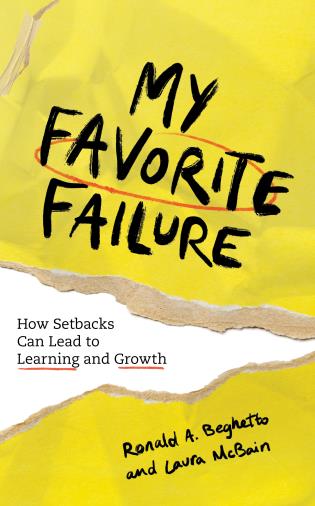
Anyway, I did end up writing something for the book which I am sharing below. Please note that what I am sharing below is a pre-publication version of the chapter and I have made some edits to the prose as well. For the final version of my piece and all the other stories you will have the buy the book.

The “favorite” failure that I always keep going back to is an extended one—stretching across the four years I spent in the undergraduate program in engineering, back in India. Truth be told, “favorite” is an adjective I can only use in hindsight. Failing was not fun or ever a favorite thing, at the time.
Just to give some context, in high school I was a highly enthusiastic, motivated kid. I read a lot, across the board— science, technology, mathematics, literature, film, you name it. I simply wanted to learn. Though I was partial towards science, and physics in particular, at some level it did not matter what the topic was. I had a vision of becoming a physicist when I grew up, studying the very small (e.g., quarks) or the very large (e.g., galaxies).
The challenge was that in India, if you were good at (or vaguely amenable to) science and math, you become either an engineer or a doctor. These were the choices offered, so I ended up in an engineering college, and that was that.
Sadly, however, I did not enjoy my four years in engineering at all. It was all about exams and quizzes, nonstop, with an all-encompassing focus on rote learning. There was no space or time for understanding or playing with ideas. I remember, in my first semester, in a class on quantum physics, I was writing limericks and poems about the ideas I was learning in the class. Imagine poems (bad ones) about wave particle duality, quantum states and the periodic table of elements. These poems were just my way of playing with ideas—similar to how a cat will play with a ball of yarn. These forays were purposeless in some way, yet meaningful in others. But sadly, that impulse to play was squelched quite quickly, partly because it was not valued and partly because there was not any time for it, given the intense pressures of coursework and exams.
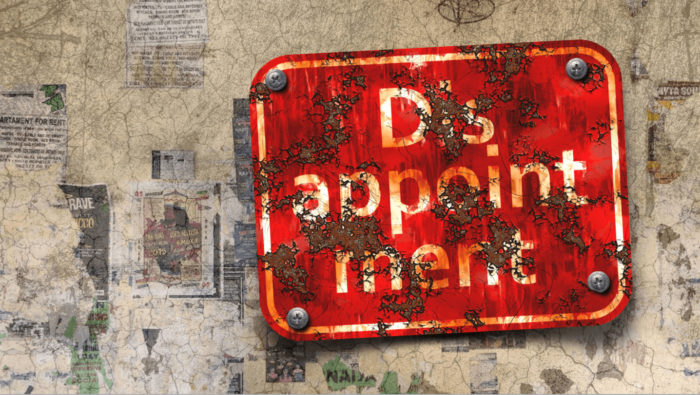
To be clear, I got reasonable grades, but at the end of the experience, none of it amounted to much. It did not help that I could not land a job – despite going for multiple campus interviews. It was clear that I had… failed. And the sad thing was that it was not a one-shot failure. It was like a gradual process of being beaten down, month after month, semester after semester—for four years. It was hard not to take it personally. It affected me a lot in terms of my future career choices and what I would do afterwards.
For the longest time this was something that I always saw as a huge failure on my part. I believed then (though I don’t necessarily believe now) that I was clearly not cut out to be a scientist or an engineer, and this was a huge blow to my self-image. It was difficult to realize this and even harder to accept it. As one might imagine, it was a sad time, which had a huge impact on my self-esteem and confidence. I did many of the usual things that people do in such situations, which is namely to say that I went into my shell, as it was emotionally wrenching to feel that I was letting down my parents and their expectations of me. There are a whole load of aspects to such situations that can affect a person psychologically and emotionally. In that way, I see those four years as the “dark years.” I look at what I went in with, which was so much energy, so much passion for learning and for doing something special—and the experience just beat it all that out of me. This is truly sad when you consider how often excitement and energy are devastated through educational structures—the very things which are (in theory) supposed to support creativity and learning.
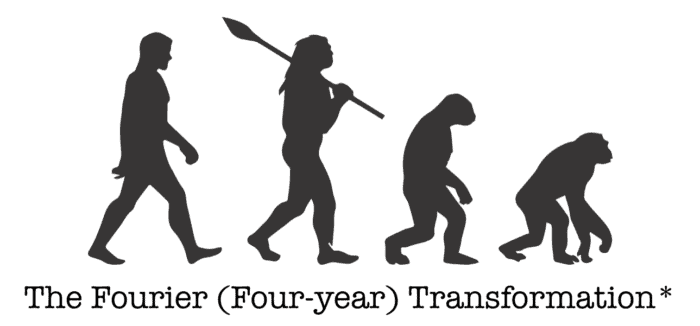
One of the most important questions a person might ask would be, what were the positives out of this situation? If we’re interested in learning, what did you learn or how did you grow? The biggest positive, really, is that I became a much better educator because of these four years because I realized that there are people in my classroom, in every classroom, who have energy and passion, and they fall through the cracks. The fact that they’re not doing well is not a measure of what their intellectual or personal worth is, but it is actually the educational system which is holding them back.
There’s a similar issue that happens when techies talk about people struggling with technology and say it’s “user error.” The truth is it’s not user error, it is the technology not being designed well. A similar thing happens in education. It’s not the learners’ fault if they are not doing well—it is our fault. I think my experiences have given me a perspective and a sense of empathy because I could see myself there with every person who was not doing well in my class. It made me a much better educator.
Coming back to the story—there I was in my last year of engineering, without a job, wondering what I would do after I graduated. And, just by chance, I saw a poster for a Masters in Design degree in visual communications at the Indian Institute of Technology in Mumbai (then Bombay). I said “OK, I’m interested in film, always loved watching and reading about serious cinema. I still love science. I love math. I grew up being inspired by Carl Sagan’s Cosmos and by Jacob Bronowski’s Ascent of Man.” I knew I still loved this stuff, these ideas, so I thought that maybe, I can make educational films. Long story short, I applied and got into the visual communications program with the intention of making a career in educational film. The goal was to still keep that love of learning, though not as an active practitioner of science or engineering but rather as a communicator of ideas. That shift transformed my life.
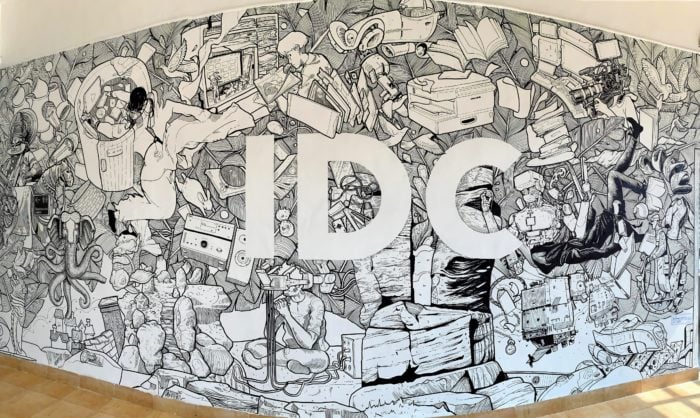
It was there at the Industrial Design Center that I was introduced to the idea of design—something that I did not know much about before, but something I seemed to fit right into. In high school I had a group of friends who shared my interests and we sort of pushed each other along—so that I felt that I belonged in that group. In the four years of engineering, I never felt like I truly belonged. I didn’t form that identity. I never became an engineer, internally. But at the Industrial Design Center, I rediscovered a bunch of like-minded people who were all interested in all these different things like typography and visual design, art and literature, psychology and human behavior, and their interconnections.
Everything that I had been doing before, which seemed so haphazard, suddenly came together. It was cool and it resonated with me. Deeply. So even today, I see the world through the lens of design. Everything in the world around me, education, parenting, anything—it’s always through the lens of design and in some ways it was that failure that pushed me in a different direction. Within a couple of weeks, I knew this is where I belonged, which I had never felt in engineering school.
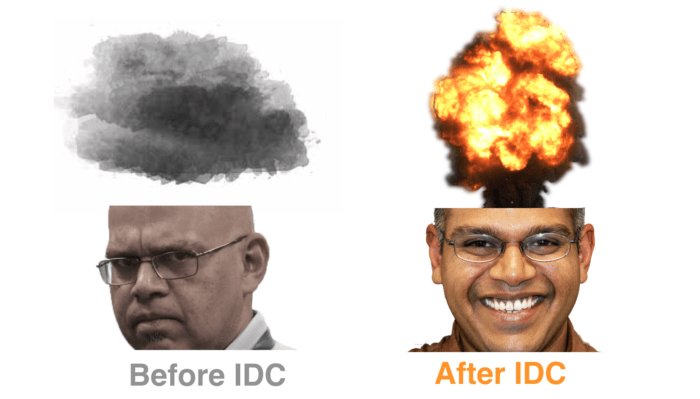
What was also amazing, in hindsight, was how breathtakingly sudden this transformation was—between April of 1988, when I was struggling to figure how what I would do after my engineering degree, to September of the same year, when I had been in design school for a month or so. In just those few months I became a completely different person. For the first time, I found an intellectual home. I found a community. Clearly there was a lot that I didn’t know about design, I still had a lot to learn, but that identity clicked right away. In literally a few weeks.
One of the things about being a designer is that at some level you are a dilettante. You dabble in many things, and I’ve always dabbled in a lot of things. I do photography and I do visual design and I like editing movies and I like to write poetry (however badly) and I love math and biology, and everything in between. What this lens of design has let me do, is take all of these disparate interests, activities and projects, and see them not as distractions but as a core part of my identity. I could be whole as a designer in a way that I could never have been as an engineer—at least not as it was done in India.
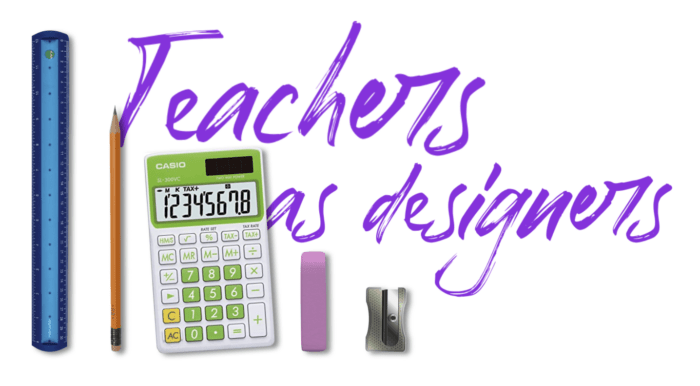
So now I can write a poem about math, and that’s fine. Perfectly fine. In fact, somebody recently emailed me asking me, if they could use a poem I had written (on a whim) about the Fibonacci sequence, in their teaching. I said, of course, “absolutely go for it.” How cool is that.
Furthermore, design is a gift that keeps on giving. Design doesn’t live in a vacuum, rather it lives and breathes in the world and is part of our lives. I bring ideas about design into my teaching and research. I bring a lens of design to the work of reimagining schools and education, to my teaching and to my work with technology and with educators and educational leaders. It is a lens that values the pragmatic even while recognizing the importance of the aesthetic. It allows me to recognize and communicate the fact that functionality and beauty (which have different meanings in different contexts) have to work together in any solutions we come up with for the challenges faced by education.
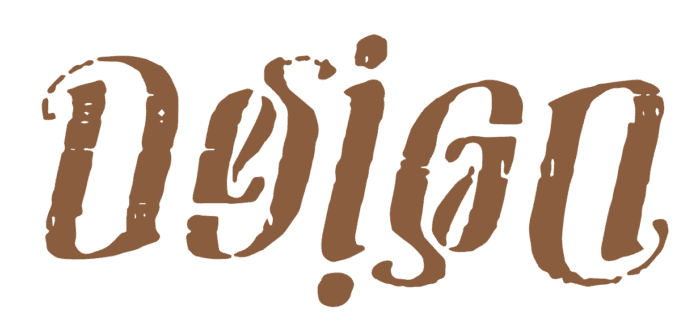
My experience in the Industrial Design Center took me back to who I really was and also made me realize how lucky I was to have stumbled into that line of work. I wonder about all the people who fall through the cracks of our educational system and what a terrible loss that is, both to the individual and to society at large. Some years ago, I was invited to give a talk at Purdue University. Purdue has an engineering education research center which was one of the biggest in the nation. I started my talk by saying: “You know, for the longest time, I thought I had failed as an engineer, I’m here today to tell you that you guys failed me. Your field failed me. I didn’t fail. You guys never gave me a chance. And who are the other people who you are letting down?” I think I’m a much better educator because of the fact that I failed those four years. If I would have sailed through, I would have never had empathy for the ones who don’t get through.
I guess, I call this my favorite failure because it is just so salient and profound in my life, and so sudden. One day I was a failed engineer, and suddenly two months later I was a designer. It touched every part of my life and my future. Clearly, I hadn’t changed in any dramatic way in those two months, but the context around me had. So, this let me see that when there is failure it is important to understand the context within which that failure occurs and think about how you can change that context into something different in order to move forward. Clearly, nothing significant had changed in me, but what changed, dramatically, was the context, what changed was the framing. Which again, if you think about it, is a designer’s way of looking at the world, since a big part of the process of design is how you frame a given problem or situation. And that has been another valuable takeaway from the process of being a failed engineer toward becoming a designer—the idea that how you frame the problem dictates the possibilities and what you are able to do. This matters in education, and it matters in everything really.
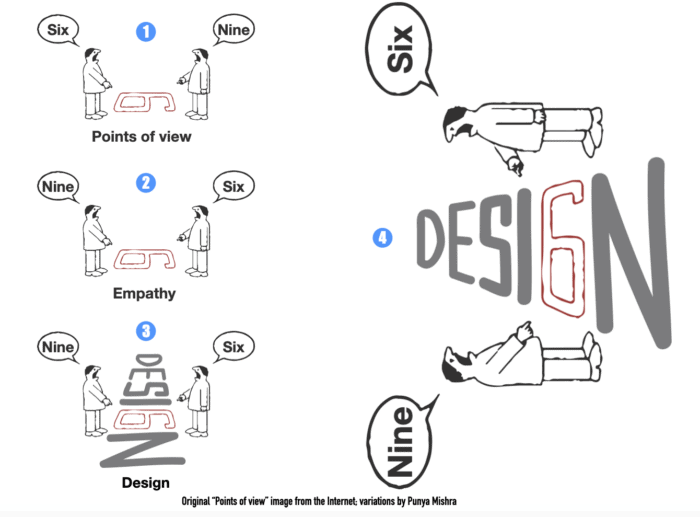
So as a broader takeaway, I think it is important to think about where you feel most comfortable and happy—where you feel most yourself. Maybe that’s what you should be trying to do and be, rather than trying to make other people comfortable and happy. If things are not working out, the solution may not be as much about changing yourself as it may be about changing the broader context within which you function.
I know, very well, that this is a privileged point of view. I had the choice to switch my career, that I had opportunities early on in life, of having the right friends and opportunities that allowed me to indulge in my multiple interests. And when I needed, I could, change the context. These options are sadly lacking for many people. Educational opportunities are sadly lacking for too many.
That said, I should also add that it is essential not to take failures personally. Failures are learning experiences. They are not about letting yourself or anyone else down. I think, also that I share one meta-takeaway from this conversation, this conversation about my favorite failure: which is to say that there is no thing such as a favorite failure. Failure is painful. Period. I sometimes get a bit cranky when I hear this Silicon Valley mantra, about failing forward. Failure is never a goal. It is never fun. I don’t ever want to fail, but it happens. But again, life is long and you can look back and say, “OK, I learned X, Y and Z from it,” but if I could get those four years back, yeah, sure, I would grab it in an instance. There is no reason why I had to fail to find my calling. I’m happy with what I do now, the freedom to play with ideas as being part of my job, and the fact that I can dabble things that are meaningful to me. And that’s been very, very fruitful for me, personally and professionally. A lot of joy comes out of it.
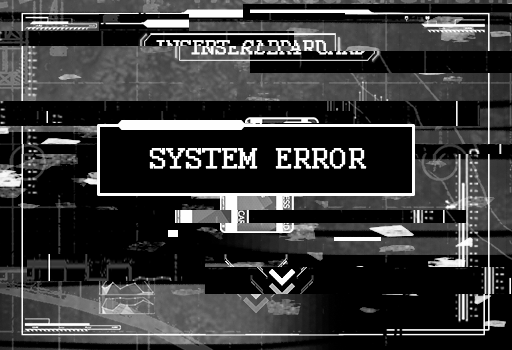
But I am also deeply aware that there are many who do not have these same opportunities and second chances—and we don’t hear their stories. So, there should be some humility when we speak of favorite failures, because we never hear from the ones who truly failed—for no inherent fault of theirs, but because the system did them a disservice. It chewed them up and spat them out. Failure, as I said before, is not fun. It’s only the lucky few, who succeeded despite these failures, who can construct a narrative that makes these failures appear meaningful. And that is important to remember. Thus, I guess, I am questioning the very idea of this series, because by its very nature, we only hear from those who, despite some failures along the way, managed to succeed in the end. I worry about all the stories we don’t hear, and that, to me, is an imperative to do better, to create systems that prevent such unnecessary, painful failures from happening in the first place.
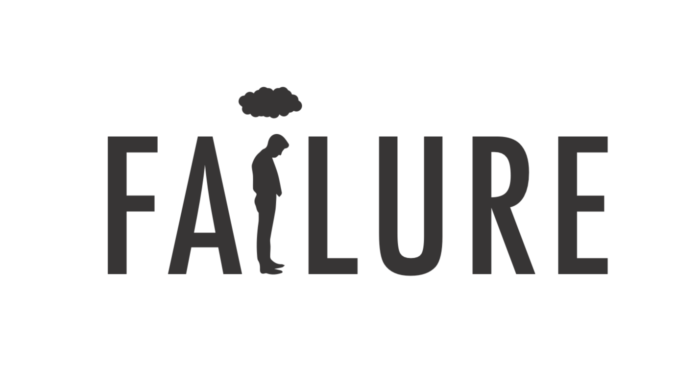

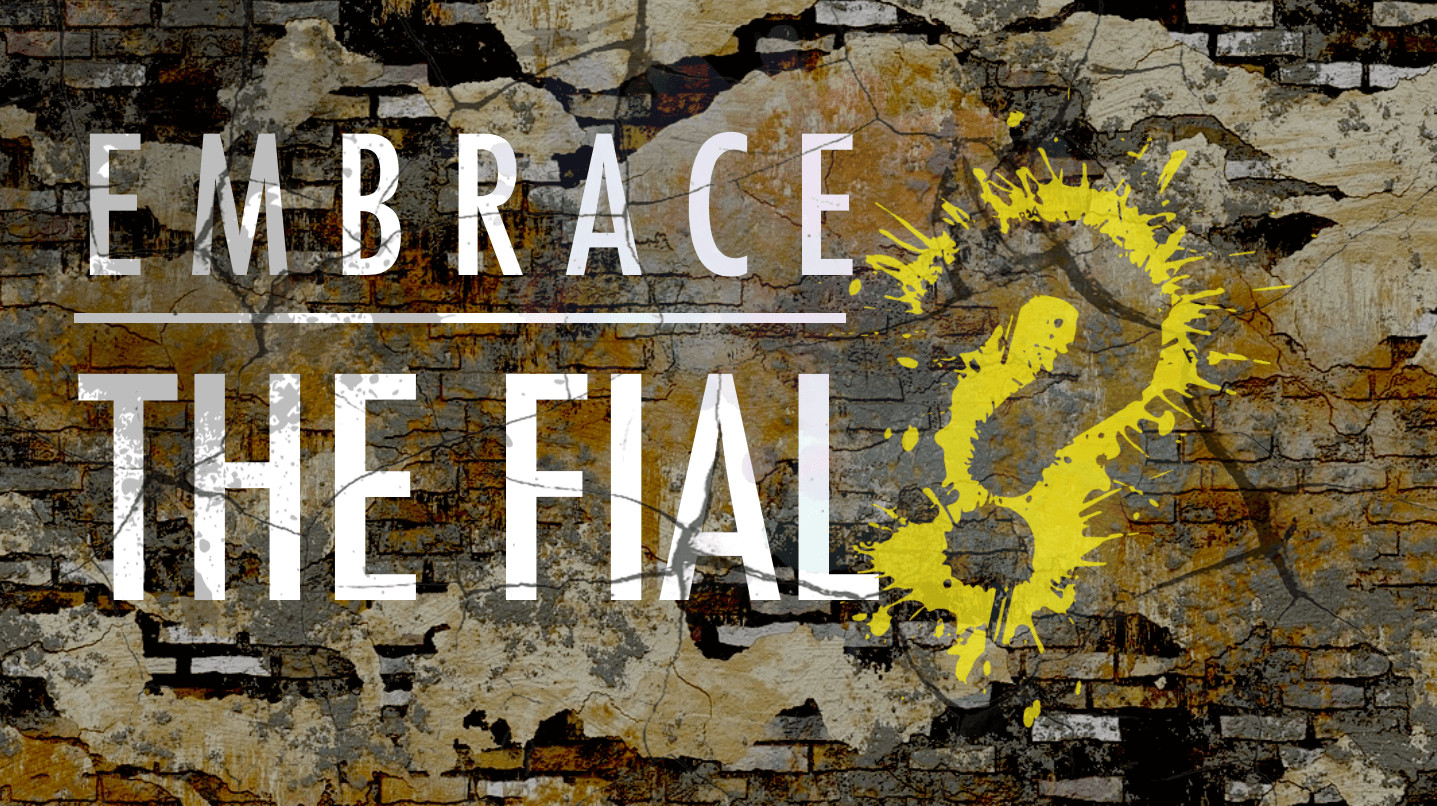



0 Comments